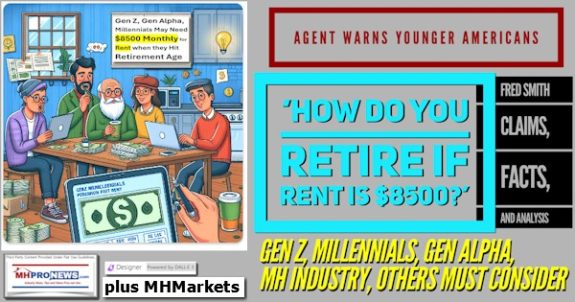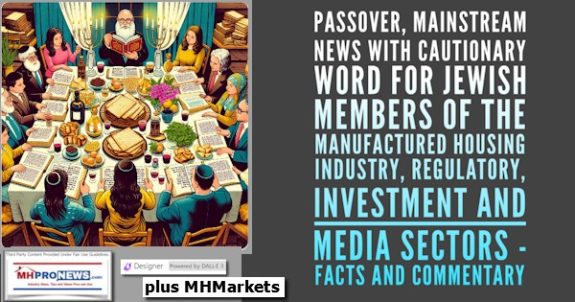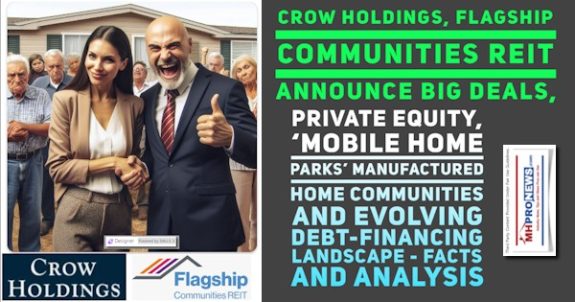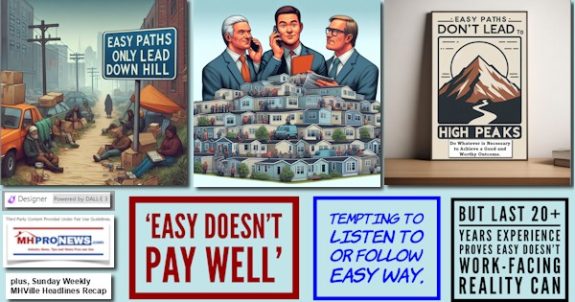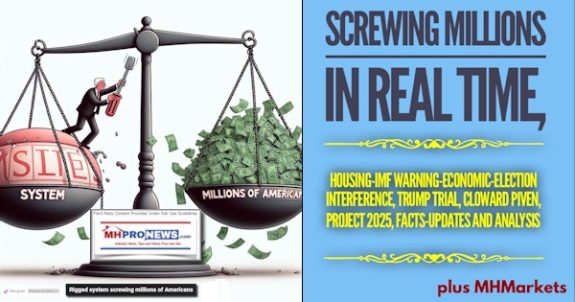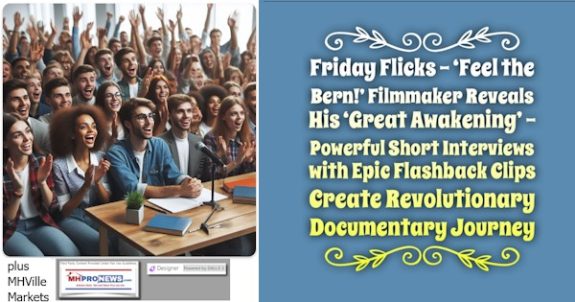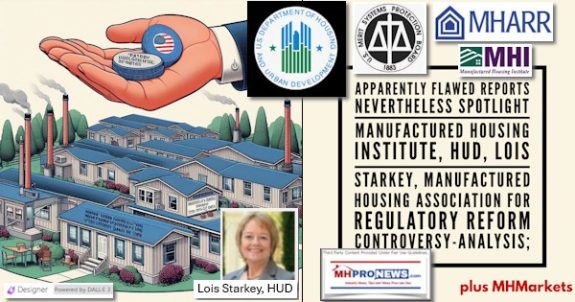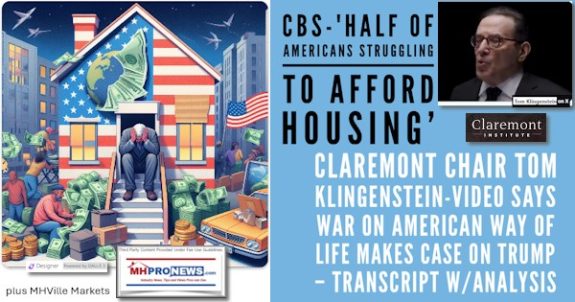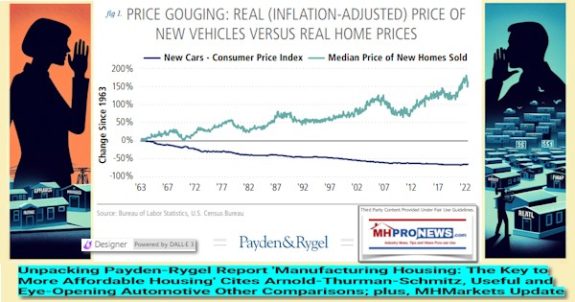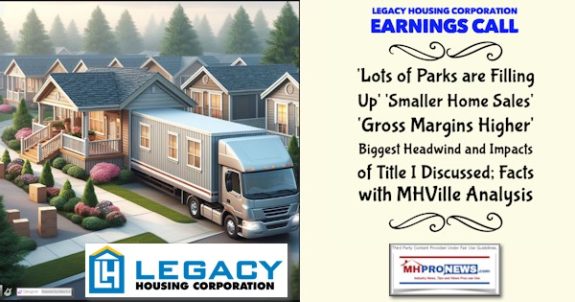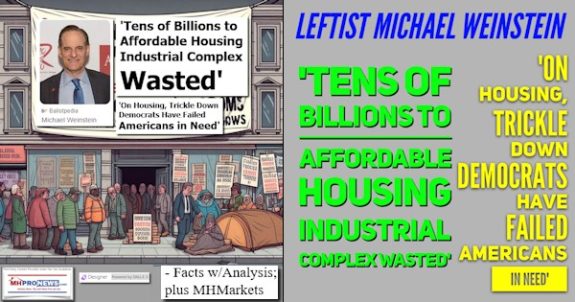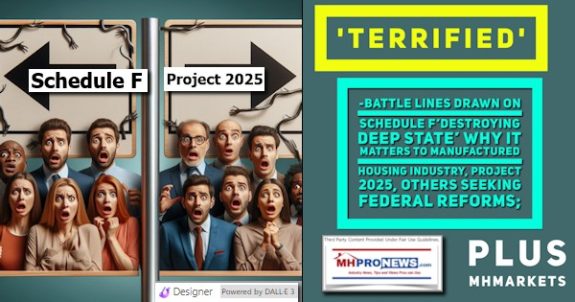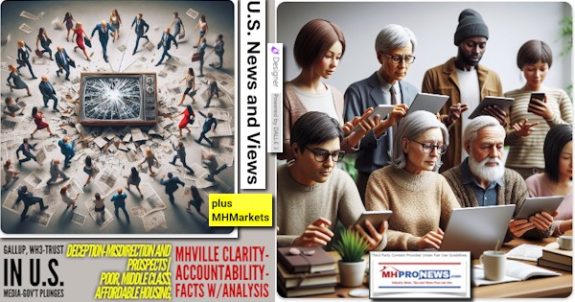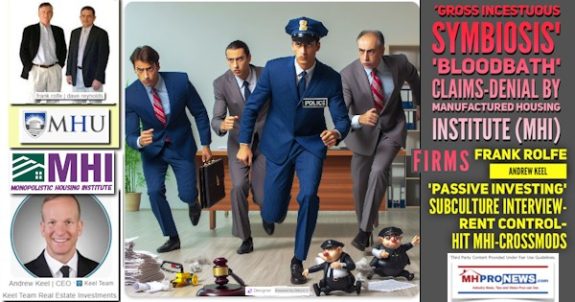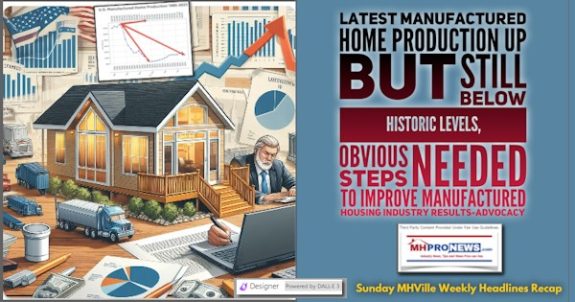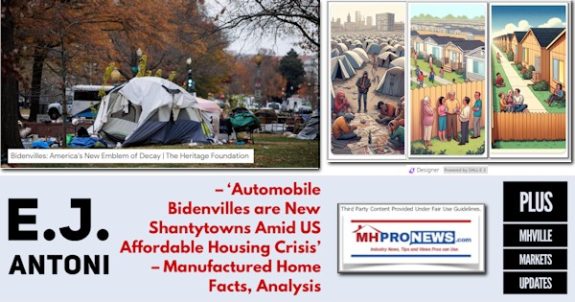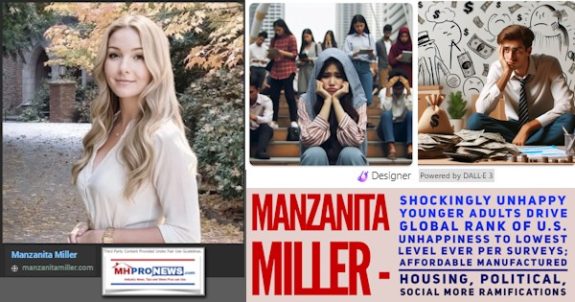
BREAKING NEWS — House Financial Services Committee Considers Manufactured Housing Legislation
On May 7th, the House Financial Services Committee adopted the Preserving Access to Manufactured Housing Act (H.R. 1779). The measure, which was adopted by voice vote, won’t be formally approved by the committee until a recorded vote is tallied. A recorded vote is expected to occur the week of May 19th – the House of Representative is scheduled to recess the week of May 12th.
Click here to read more.
MHI’s CFPB and Financial Services Updates
CFPB Releases RESPA-TILA Disclosure Form Guidance
On April 17th, the CFPB released a small entity compliance guide for completing combined RESPA-TILA disclosure forms. According to the CFPB, the guide provides instructions for completing the Loan Estimate and Closing Disclosure and also highlights common situations that may arise when completing the forms. It may also be helpful to settlement service providers, software providers, and other firms that serve as business partners to creditors. To view the guide, click here.
Click here for more CFPB and Financial Services Updates.
New MHI Advocacy Page Floods Capitol Hill with Emails
With calls for legislative action being emailed from MHI Chairman Nathan Smith to persons in the manufactured housing industry, MHI unveiled its new advocacy page as a tool to contact elected public officials. The results — over 5,000 emails to Capitol Hill in just a week.
Click here to read more.
HUD Proposes to Increase Manufactured Home Label Fees
On May 2nd HUD published a notice in the Federal Register to increase the label fee under the Manufactured Housing Construction and Safety Standards program to $100 per label from the current $39.00 per label. Click here to view the proposed rule.
According to the preamble of the proposed rule, HUD says it needs to raise the fee because it has not been raised since 2002, and due to a steep decline in production since then, HUD has had to rely on Congressional appropriations to cover program expenses. For the last several years, Congress has directed HUD to raise the label fees to cover program expenses.
According to the proposed rule, HUD anticipates that a label fee increase will go into effect by the end of the year. It has shorted the comment period to 30 days rather than the normal 60-day public comment period, despite the significant increase it is proposing. It has justified the shortened comment period because it has publically announced (through the annual budget) its intention to raise the fee to $100.
Comments are due on June 2, 2014. MHI will submit comments.
Please contact Lois Starkey at (703) 558-0654 orlstarkey@mfghome.org to provide input or information.
Working Group Discusses Appraisal Regulatory Requirements during Congress and Expo
On May 1st, as tasked by the MHI Board of Directors during the association’s Legislative Conference and Winter meeting in February, a working group of manufactured housing industry professionals (including members of MHI’s CFPB Taskforce) participated in a focus group session examining methods that would allow industry lenders to comply with CFPB rules regarding appraisals for Higher-Priced Mortgage Loans (HPMLs). The rules for the industry become effective July 2015. For a summary of the rules, click here.
Representatives from NADA Guides and Datacomp provided a demonstration of how their manufactured home valuation products and services could be adapted to full CFPB guidelines for non-Qualified Mortgages that also meet the HPML definition. MHI has been tasked by its board to facilitate the development of valuation options, for the industry, that could efficiently and cost-effectively meet the requirements of the rule.
MHI intends to seek the input and participation of larger segments of the industry as this development process continues. For more information, MHI members can contact Jason Boehlert at (703) 558-0660 orjboehlert@mfghome.org.
2014 Congress & Expo For Manufactured and Modular Housing Recap
The 2014 National Congress & Expo for Manufactured and Modular Housing reflected the recent growth in the industry with attendance increasing 13 percent over 2013 with 950 total attendees, representing every segment of the industry, participating in the event. 2014 also saw an increase in exhibitor participation with 102 booths in the exhibit hall and there were 24 corporate sponsors supporting this year’s trade show. There was a feeling of renewed energy and optimism and the exhibit hall was bustling with activity. Attendees took advantage of the many education sessions, general session speakers, and the networking opportunities available to them.
The 2014 Congress & Expo was kicked off by a Mondayafternoon golf tournament sponsored by Oliver Technologies.On Tuesday, the MHI National Communities Council held its annual Spring Forum. (See related article for details.)
The 2014 Keynote was given by Ken Segall, author of Insanely Simple – The Obsession that Drives Apple’s Success. Segall, who worked with Steve Jobs, argued for strong branding through simple themes, such as those developed by Apple. Apple grew to one of the largest companies in the world because it kept things simple. “Simplicity stands out in the complex world,” Segall argued. Apple developed devices that were simple for the user, but were incredibly advanced in their complexity so they could perform more functions while being easier for users to operate. As an example of Apple’s implementation of simplicity, Segall discussed Apple competitors Dell and HP. Those companies have approximately 40 to 50 separate brands of laptops each, while Apple has six and each of the six has a name identified with “Mac.” The names associated with the other companies have no common denominator and include product numbers. He quoted Jobs as saying, “One should use common words to explain uncommon things. Simple can be harder than complex.”
Thursday morning’s general session speaker, Chris Fisher, Managing Principal at Ducker Worldwide delivered a data packed presentation that forecasted growth for the industry in the future. He stated that we are five years into recovery from the recent “great recession” which was one of the longest recessionary periods over the past 30 years. However, residential housing spending is not tracking with the total economy. He reviewed the key drivers for housing demand – population, household formation, GDP and employment health, and spending. He then equated these drivers to trends that would favor affordable housing.
Fisher showed that household formations are increasing over levels seen during the past 20 years and employment levels are also increasing. The increase in part-time employment vs. full-time employment will increase demand for affordable housing. Housing shortfalls are indicating a level of pent up demand, and apartment occupancy and rents are at high levels. Builders and multi-family developers are struggling to develop and manage offerings for the entry level, affordable home buyer. He concluded that the market has set itself up for a high demand for affordable housing and that the manufactured housing industry specifically should see growth during the next four to five years. Lastly, he talked about how the industry can accelerate growth through focusing on the customer.
Twelve educational workshops were held during the event on Wednesday and Thursday. Handouts from those presentations can be viewed on MHI’s Congress & Expo Web site at www.congressandexpo.com. Programs focused on consumer financing, commercial lending, regulatory compliance, sales and marketing, business financial management, energy efficiency, and community management issues.
The 2014 National Industry Awards Luncheon recognized individual companies, land-lease communities, retail sales centers and manufactured and modular home designs. Home manufacturers receiving EPA EnergyStar Certified Homes Market Leader awards were also recognized. For a list of award recipients click here.
MHI thanks all the sponsors of this year’s event. The 2015 National Congress & Expo for Manufactured and Modular Housing will be held at the Paris Hotel in Las Vegas on April 14th-16th.
Platinum Sponsors
Marcus & Millichap
Oliver Technologies, Inc.
RHP Properties, Inc.
Sunstone Manufactured Housing Consultants
Gold Sponsors
Assurant Specialty Property
Inspire Communities
UMH Properties, Inc.
Wells Fargo
YES! Communities
Silver Sponsors
CU Factory Built Lending
Lippert Components, Inc.
MHVillage, Inc.
Shaw Industries, Specialty Markets
Southeast Auction Company
Bronze Sponsors
Advantage Homes
CBRE National MHRV Team
Hometown America
Purchasing Platform
Riverstone Communities
Style Crest, Inc.
Sun Communities
The Housing Marketplace
U.S. Bank
Yale Realty & Capital Advisors
2014 MHI NCC Spring Forum Takes on Tough Topics
With community owners from across the country – 19 states – plus community owner/operators from Australia and three Canadian provinces, the 2014 Spring Forum covered a wide variety of topics in addition to geography.
Given the evolving nature of rental programs, the panel discussion titled “Look Before Leasing” addressed five key questions owners and operators should consider for renting homes. Stressing the importance of keeping sales and rental operations separate, all panelists urged careful and correct compliance with the regulatory intent of the Consumer Financial Protection Bureau. When implementing a rental program, panelists also emphasized the need for the community manager to have the right to inspect the homes to ensure they are being properly maintained. It was encouraged that a monthly “right of entry” be included in the rental agreement.
A different panel discussion focusing on how to prevent consumer defaults and keeping residents in homes revealed that many community owners have programs in place to provide financial assistance to residents who experience economic hardship. Dee Pizer, of Zeman Homes, noted that her company’s rental assistance program began in 2008. Her company’s program requires residents to apply for the program to receive a rent reduction noting that it can cost up to $600 in legal fees to begin the process for an eviction so why not consider helping those residents who merit consideration? Other panelists concurred such programs need to have structure and a defined time period of assistance. The panelists also noted that the best thing a community owner can do is to have a manager who is walking and talking with residents, who can learn about developing issues or problems. Said Julio Jaramillio of Evergreen Communities, “Managers are able to build a history with residents, understand what is happening, and assist in dealing with changing situations. We want to be involved and listening so we can help when it makes sense.”
Social media expert Tom Derzypolski of BowStern Marketing Communications stressed the importance of having a social media presence. Reminding the audience that “birds of a feather flock together,” he pointed out when prospective qualified customers consider a community, they are likely to have similar friends and family in their networks who would also be appropriate prospects. He noted that the “like” function of Facebook is similar to an instant endorsement that is immediately shared with people’s networks to “vouch” for a community. According to Derzypolski, without exception, every business needs a web site and, at a minimum, to keep it updated with current information.
Another panel discussion focused on how community owners and lenders can better work together when there is a home in default. Moderated by Dick Ernst of Finmark, all the representatives of the leading national lenders stressed the importance of communication between the lender and the community owner. Given the importance of securing the actual asset, Scott MacFarlane of U.S. Bank reminded the audience that time is of the essence to secure the asset and quickly begin remarketing the home. Said MacFarlane, “We don’t want to relocate the home, it is better for everybody to keep it in the community but it requires cooperation from both sides.” As questions from the audience arose regarding specific activity such as cooperative marketing, keeping the grass mowed, or assisting in keeping the home well maintained, Barry Noffsinger of CU Factory Built Lending noted that these types of questions could be developed into a worksheet that lenders could use with community owners so that everybody involved in the situation understands who will perform which tasks and at what financial impact (either bearing the cost, reducing the rent, or so forth).
While it was a full day of programming and topics, a large number of attendees took the time to complete on-site evaluations of the programming. All but a handful of responses were marked “very satisfied” or “satisfied” on an overall basis for the day. Many attendees commented that they enjoyed the networking opportunities and the content with feedback such as “very relevant topics.”






